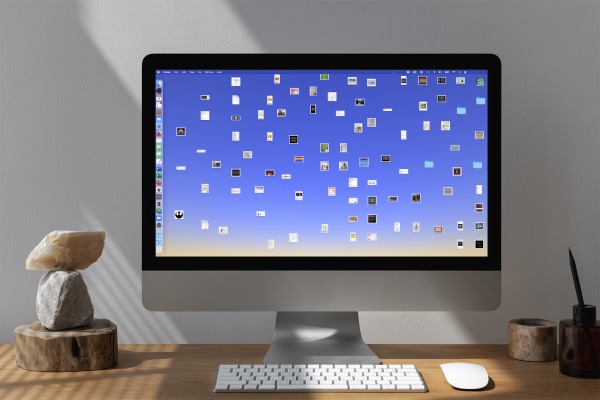
As entrepreneurs, we use computers to manage our business, and they often do double-duty as our home computer. They work hard, but we don’t realize how disorganized our accounts and the hard drive can get because we don’t see a physical mess. But over time, your system will slow down and give you error messages. Before it breaks down completely, take some time to declutter your computer.
Passwords
The Center for Internet Security recommends that you have strong passwords (at least ten characters with a combination of uppercase and lowercase letters, numbers, and symbols) and a different one for each website you log into.
Hackers break into online accounts and post lists of usernames, email addresses, and passwords on the dark web. Other hackers use email addresses and usernames to look for other accounts associated with the same person (social media, bank accounts, etc.). Then, they use the password they found on the dark web to gain access to those accounts. But if all your passwords are different and hard to decrypt, you can stop them.
If you don’t already have one, invest in a password manager. I wrote several blog posts about the benefits of password managers, how helpful they are in estate planning and facilitating an address change if you move.
Online Shopping
Online shopping accounts for 21% of all retail sales. And that means you likely have store and other loyalty point accounts that you have forgotten about or that you no longer use. All of these accounts store your personal information. Even if they don’t collect or retain your credit card number, they still have your address, phone number, and email address on file – and that information can be all that a nefarious hacker needs to destroy your credit score.
Go through all of your online accounts. Keep accounts that you regularly shop at (i.e., within the past 6-12 months). Delete accounts that you do not use and request that they purge your information from their files. You may need to do a password reset to access the account to close it. It’s a hassle, but the peace of mind you’ll have from knowing they deleted your personal information is worth it.
Loyalty Accounts
Like online shopping accounts, loyalty programs, store your personal data too. Consider switching to an all-encompassing points collection system such as Airmiles or one that comes with your credit card. Let go of rarely used loyalty accounts such as hotel chains or airlines that require massive points accumulation before you can redeem them.
If you have points on your loyalty plan, consider donating them before closing your account. The Canadian Red Cross accepts Aeroplan Miles. MoneySense Magazine lists some other reward programs that will let you donate points – and they mention that you can bequeath points in certain programs in your will. For the loyalty programs you are keeping, ensure you update your passwords.
Software and Applications
Scroll through the applications on your computer. There are likely old and unused programs lurking on your hard drive taking up space and slowing down your system. Or, you might have several programs that do the same thing. It’s time to declutter your computer and optimize it!
Don’t just go randomly deleting programs; use the uninstaller function. If you don’t know how to do this safely, get some help from a technical expert. If you don’t follow the proper uninstall procedure, some bits and pieces of code may be left behind, which can disrupt your system later.
Desktop and Documents
Storing frequently used files on your computer desktop makes it easy to access them, but it can also make your system sluggish. File away what you don’t use into proper folders on your hard drive. Instead, create one or two shortcuts to direct you to the files you need.
It can seem overwhelming to declutter your computer files – including photos, videos, music, and movies. But slow and steady wins the race. Start with the oldest files and delete corrupted files or those you can no longer access. Keep useful information and rename the files to something more descriptive if necessary. Store similar files together in one folder (e.g., 2018-Finances, Employment-Records-Betty). Delete unflattering and out-of-focus photos and videos. Offload older media to an external hard drive or cloud drive to save space on your system.
I could write essays and essays on how best to manage email. Wait! I already have! From organizing your email to getting your inbox under control, I have over a dozen articles on streamlining email and using it effectively.
Now that your computer is tidy, backup your system regularly to prevent a data loss disaster. Set aside a few minutes every month or every quarter to declutter your computer. If you would like advice on this topic, check out these additional articles on computer solutions. Or, you may be more interested in tips for keeping your business organized and running smoothly. For hands-on help, contact the Out of Chaos team.
